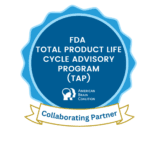Motor learning after cerebellar damage: The role of the primary motor cortex
The goal of this study to examine how you learn to make new movements with your arm and whether this ability is related to the activity of an area of your brain, called the primary motor cortex, where activity is altered in people with cerebellar ataxia.
ClinicalTrials.gov Link: clinicaltrials.gov/ct2/show/NCT05351255
About the Study
Eligible Ataxia Types
Spinocerebellar Ataxias, Sporadic Adult Onset Ataxia, Idiopathic Ataxia
Type of Study
Research Study
Clinical Trial Phase
N/A
Age Range
Adult 18+
Study Start Date
07/01/2022
Estimated Completion Date
06/30/2024
IRB Approval #
AEHN-IRB-2022-881
Location(s)
Moss Rehabilitation Research Institute
50 Township Line Road
Elkins Park, PA
Contact Information
Amanda Therrien
Amanda.Therrien@jefferson.edu
215-663-6329
What does participation in the study entail?
The study uses 3-dimensional motion capture equipment with virtual reality. The motion capture tracks your movements, and the virtual reality environment provides altered visual feedback about your movements. The study also uses a type of non-invasive brain stimulation called transcranial magnetic stimulation (TMS). Non-invasive brain stimulation involves applying safe, non-painful electrical current to the surface of your head in order to alter and measure the activity of the brain area underlying the stimulation. Participants will also undergo an assessment of upper and lower extremity motor abilities and sensory function. Usually, 4 research visits over the course of 6 months will be required. You may be invited to return for additional visits, if necessary. Each visit may take up to 3.5 hours.
What are the potential benefits for participants?
We hope that one day the knowledge gained in this study will help guide rehabilitation therapy for ataxia.
What are the potential risks for participants?
The study is IRB approved and considered minimal risk. However, all volunteers are screened to make sure they are safe to receive TMS as part of the eligibility determination.
Is there financial compensation?
Yes. $20 per hour.
Is there travel reimbursement?
Yes. $0.575/mile, max $50 per visit.
We can also provide transportation for participants in the Philadelphia region at no cost.
Who is eligible?
Anyone diagnosed with cerebellar ataxia from a degenerative condition. This can be a hereditary condition, such as an SCA, or from sporadic or idiopathic condition.
Additional Information or Resources
Download the Patient Information Flyer for more information.
View Other Research Opportunities
Spinocerebellar Ataxia Patient Feedback Survey
The survey aims to gather opinions about Antisense Oligonucleotide (ASO) therapy research, and the information gathered will be used to help develop future clinical studies for ataxia. Link to Enroll: Read More…
PATH
Proactive Approaches to Health for Asymptomatic Adults at Risk for Neurodegenerative Conditions The aim of this study is to assess the needs of asymptomatic adults at-risk to carry a pathogenic Read More…
Phase 3 Efficacy and Durability of Ampreloxetine for the Treatment of Symptomatic NOH in Participants with Multiple System Atrophy (CYPRESS)
This is a Phase 3, multi-center, randomized withdrawal study to evaluate the efficacy and durability of ampreloxetine in participants with MSA and symptomatic nOH after 20 weeks of treatment. This Read More…










